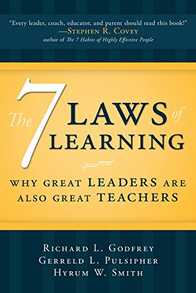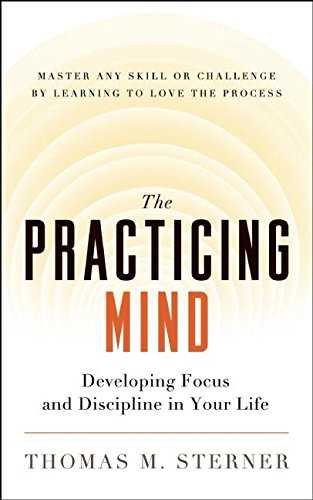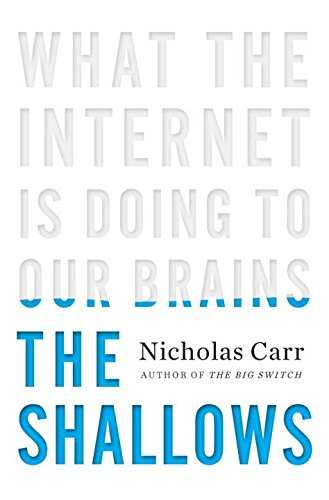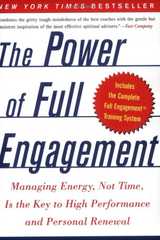
The Seven Laws of Learning: Why Great Leaders Are Also Great Teachers
byRichard L. Godfrey
This book opened with a powerful statement, "Leaders don't change lives. Teachers do." A key element of that lies within the ability to see reality clearly. Our needs and how we preconceive reality, create the window through which we view the world, our 'Belief Window, which we use to create models of how the world works which helps to shape our behaviors. The most impactful change comes not from forcing behavioral change, but changing our belief windows. The seven laws of learning are: We are all born to learn, You never know when learning will occur, We learn by connecting, We all learn differently, Connections come through Storytelling, Learning is both an emotional and an Intellectual Experience and Learning can change lives. The book is separated by Laws of Belief and Laws of Behavior.
Motivations to Read
The more I learn, the more I want to optimize my learning process, this is vital as a lifelong learning and as someone who is very interested in meta-learning, the art of learning how to learn.
3 Reasons to Read
- Learn how to be a better teacher
- Improve your communication skills
- Understand the power of stories and how to utilize them to get your message across
Notable Quotes
"Leaders don't change lives. Teachers do." - Richard L. Godfrey "A key element of being a great leader and teacher lies in the ability to see reality clearly." - Richard L. Godfrey "Facts are important in presenting information, but, as discussed in an earlier chapter, leaders must handle them with care and creatively present them to ensure that listeners can learn, retain, and remember them." - Richard L. Godfrey
The Seven Laws of Learning: Why Great Leaders Are Also Great Teachers Notes & Summary
The Seven Laws of Learning are:
- Law 1: We were all born to learn.
- Law 2: You never know when learning will occur.
- Law 3: We learn by connecting.
- Law 4: We all learn differently.
- Law 5: Connections come through storytelling.
- Law 6: Learning is Both an emotional and an Intellectual Experience.
- Law 7: Learning can change lives.
"The ability to tell stories effectively is a major key to successful communication."
Core message of the book: Leaders don't change lives. Teachers do.
"The most important power we have is the power to help select the lens through which we see reality."
Be careful of reading history in terms of your own context.
"(Don't) Read and judge an historical event from the perspective of your life and experience today. [..] try to immerse yourself in enough historical context to try and see the world through their eyes, their understanding and their experience or you will, more often than not, judge them wrongly or even harshly."
"A key element of being a great leader and teacher lies in the ability to see reality clearly."
"The Reality Model teaches us that the directions our lives take - especially in the face of a challenge - relate to how we see and respond to a challenge as much as what the challenge itself may be."
"We all have needs. These needs drive all of our behavior - often subconsciously, but everything we do every minute of every day is being pushed or driven by one or more fundamental human needs."
The description for the need for significance stood out to me:
"for SIGNIFICANCE-the desire to make a difference or have meaning in our lives. This need drives activities like the raising children, community or military service, religious or spiritual inquiry, and many forms of personal sacrifice and contribution. Covey calls this need "the need to leave a legacy."
"Our behavior does not occur randomly, accidentally, or in a vacuum; it is the product of a principle on our Belief Window being exposed to the if/then process of our mental rules on the Reality Model's bridge."
Key Principles of the Reality Model - The results we achieve in life are the product of our behavior. - The results we should desire are those that meet our needs over time.
"A leader that only relies on reward, punishment, and/or facts to change behavior experience will experience [..] temporary and fractured engagement around a desired and needed change."
"If like Nelson Mandela, you want to product broad change with lasting effect - change that will meet your needs over time - focus your attention on changing beliefs instead of focusing on directly changing behavior."
"Don't focus on changing behavior; focus on everyone's Belief Windows."
Teaching & Learning is A Matter Of Making Connections
"The 'relational' adjective came from the realization that in order to learn anything, we must be able to connect with it and relate it to our own lives and something we already know. Making connections is also critical in understanding any subject matter being taught because every concept, subject, or topic is made up of varying parts or elements that relate to each other."
Theodore Roszak, author of a book about the difference between human intelligence and computer-based artificial intelligence wrote:
"The mind thinks with ideas, not with information. Information may helpfully illustrate or decorate an idea; it may, where it works under the guidance of contrasting idea, help to call other ideas into questions. But information does not create ideas... An idea can only be generated, revised, or unseated by another idea. A culture survives by the power, plasticity and fertility of its ideas."
Laws of Belief:
These laws require changes in your belief system.
- Law 1: We were all born to learn.
- Law 2: You never know when learning will occur.
Laws of Behavior:
These laws focus on making connections.
- Law 3: We learn by connecting.
- Law 4: We all learn differently.
- Law 5: Connections come through storytelling.
- Law 6: Learning is Both an emotional and an Intellectual Experience.
- Law 7: Learning can change lives.
Law 1: We were all born to learn.
In the book of Romans, Paul wrote, "Our longing for understanding is eternal."
Einstein made similar connections when he said, "The pursuit of truth and beauty is a sphere of activity in which we are permitted to remain children all our lives."
"Leaders and teachers who can teach in ways that connect and involve many leaners in the natural learning process will have the most impact and the highest chance of reaching great numbers of people, both young and old. Every leader, parent, coach, and school teacher has an important role in helping to make this natural process conscious. We must keep the natural process alive in our own lives as we leave formal education behind, especially if we find ourselves in leadership and other roles that require us to be good teachers."
Law 2: You never know when learning will occur.
"Confucius, then, was to teach by connecting us with the universe around us and revealing what the universe tells us about ourselves, our natures, and our relationships. Most important, he showed us how to take those two kinds of knowledge - of nature and of self - and find ways to live better, to become what he called "the superior man." "
"To lean the higher and more noble things in life, we can look for the stories and the lessons around us - if we will but allow [nature] to exhibit herself to [us]."
"In Dr. Stephen R. Covey's book The Seven Habits of Highly Effective People, he identified a profound statement central to our ability to connect with people - Habit Five: Seek First to Understand, Then to Be Understood. When we seek to understand, we discover the stories of individual and organizational lives."
Law 3: We learn by connecting.
"Teaching and learning is a relationship-based experience. [..] Trust is also the basis of a great learning experience. Without it, learners are less enthralled, less engaged, making it harder to draw them into the experience and impossible to hold them there."
"Facts are important in presenting information, but, as discussed in an earlier chapter, leaders must handle them with care and creatively present them to ensure that listeners can learn, retain, and remember them."
"Repeat the concept you are teaching." "Provide significant emotional experiences."
Great teachers must do two things in this regard: 1. Be sincerely interested in those you teach and lead. 2. Show that interest in the way you teach.
Law 4: We all learn differently.
The VARK acronym for an educational approach built around the truth that each of us has preferred ways of learning.
V = Visual - learning by seeing.
A = Auditory - learning by listening
R = Reading Based - learning by reading words
K = Kinesthetic - learning by physically doing something.
A good teacher might ask:
- What do I want them to see?
- What do I want them to hear?
- What do I want them to read?
- What do I want them to experience?
"Another thing I have found through a lifetime of observation: until we understand the power of learning styles, we will often project our own learning style onto everything we try to teach, communicate, and learn."
Visual learners might assume everyone loves visual tools such as power-point or have communications have on images but that like description or details.
Auditory Learnings might love meetings, discussions or anything that involves talking or listening.
Reading-Based learnings may love to communicate through text, and share emails, documents or anything that requires reading.
Kinesthetic Learners, usually use a lot of body language to communicate, and love exercises that involve doing something and engaging with others. They promote a lot of activities and use physical sense are a primary tool.
Learn how to communicate and support different learning styles.
Law 5: Connections come through storytelling.
"A short, online review of the history of anthropology of storytelling yields one dominant theme: storytelling is foundational to the human experience regardless of the time frame, the culture, or the context. We are born to tell and listen to stories as a way to understand and to learn."
- "Tell stories-lots of stories-but stories that make important points and include significant details that illustrate the points."
- "Don't explain the story but tell it-including the rich detail and illustrations that paint a mental picture for those who are listening."
- "Resist the temptation to think that stories cloud or obscure a point that could be made more directly. Although simply making the point can be effective, using that technique too often can become dry and uninteresting."
Law 6: Learning is Both an emotional and an Intellectual Experience.
"In his seminal work, Emotional Intelligence, Daniel Goleman points out the role of emotion interacting with logic in learning. Speaking of our ability to process data and make rapid-fire decisions about what to value and pay attention to and what to ignore, he writes, "Formal logic alone can never work as the basis for deciding who to marry or trust or even what job to take; these are the realms where reason without feeling is blind.""
- "Remember that emotion is the door to personal engagement."
- "Don't forget that the goal of teaching is "to light the fire, not to fill the bucket.""
- Accept the discomfort that can come with emotional exchanges as a given. You must learn to lead your team as an example of the appropriate use of emotion -to motivate and not to manipulate or embarrass.
Law 7: Learning can change lives.
"In the Reality Model we discussed in the beginning of this book, the process of imprinting places and idea on our Belief Window so strongly that it becomes permanent enough to start affecting behavior through the 'if/then' rule inherent in the 'bridge' part of the Reality Model. This imprinting requires that four pieces, or components, be in the place. They are not really steps because they do not often occur in a liner progression."
These pieces are:
- Desire
- Learning Style
- Repetition or Signifiant Emotional Experience
- Feedback Awareness
"This desire to know or believe makes up the first component of imprinting. Desire does not require wholesale and complete acceptance of the new or proposed belief or idea. Rather, it requires that you accept and plant the seed-that you desire to believe enough to start the experiment."
"It has been said that people "need to be reminded more often than informed, but prefer to be informed more often than reminded.""
"While it is both valuable to learn new things and possible to learn something from a single exposure, repetition is key for most of us if we really want to imprint and remember new information. At the same time, a leader and teacher must make the needed use of repetition a valuable part of the learning experience."
"Remember that you cannot create desire to learn, but you can prepare fertile ground for desire by practicing the preceding six laws of learning. Very little learning and no permanent change occurs in people who don't desire to consider new ideas and change unworkable behaviors."




